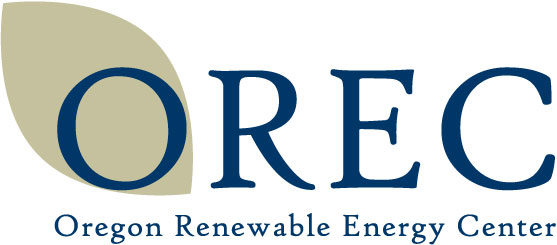
RERIP Funding Opportunity Description
Program Overview
The Oregon Renewable Energy Center (OREC) is funded by the State of Oregon and hosted by the Oregon Institute of Technology (Oregon Tech). The Center’s mission is to advance renewable technologies and support small and medium-sized industrial entities in Oregon by prototyping, testing, validating, and accelerating “cleantech” products and renewable energy applications.
Program scope
The OREC Renewable Energy Research and Innovation Program (RERIP) seeks to fund proposals on leading edge, applied research initiatives in broad areas of renewable energy, particularly those that impact the state of Oregon. The program especially encourages and emphasizes proposals that support small and medium-sized industrial[1] collaborators in Oregon by prototyping, testing, validating, and accelerating “cleantech” products and renewable energy applications. The proposals’ budget can range from $5,000 to $50,000. Proposals are invited on a wide range of renewable energy topics of topical interest, including but not limited to:
- Geothermal technologies
- Wind energy
- Solar technologies including photovoltaic, solar thermal
- Energy storage including long-duration energy storage
- Hydrogen technologies
- Carbon capture /reduction
- Energy efficiency in electronics
- Economic, and social aspects and impacts
Proposers are encouraged to review the rest of this document for related details.
Eligibility
Oregon Tech accepts proposals from full-time faculty. OREC administrators and staff are not eligible to apply for RERIP funds.
Proposal preparation
Proposal format
Proposals should be prepared using the following formatting guidelines.
- Paper Size: 8.5 x 11-inch paper
- Margins: 1 inch
- Spacing: 1.0-line spacing
- Font: Times New Roman, 12 point
- Page Limitation: 10 pages
- Content and documentation: as described below
Failure to follow formatting guidelines may result in the proposal not being reviewed. All required documentation including appendices shall be provided as a single document (pdf format).
Proposal content
All proposals must include the following sections:
- Executive summary
- Project description (including the following)
- Background and premise.
- Goals and objectives.
- Describe how the proposed project advances the state-of-the-art in the topic(s) of the proposed research.
- Describe how the project provides hands-on student experiential learning or research opportunities in renewable energy topics.
- Describe how the proposed project provides the resources for contributing to and strengthening Oregon’s renewable energy research infrastructure.
- Project timeline and deliverables.
- Challenges anticipated and mitigation strategies.
- Investigator team members (principal investigator or PI and co-principal investigators or Co-PIs) and their roles in the proposed project.
- List of current and prior OREC funded projects (if applicable[2]).
- Results and products from current and prior OREC support (if applicable).
- Products include refereed publications, conference presentations and proceedings, intellectual property disclosures, patent applications and patents
- Required appendices
- Budget table and justification
- Documentation to support equipment requests
- Investigator biographies
- Any other relevant documentation
[1] Companies that are based in Oregon, or operate in Oregon
[2] Applies to any past or current PI and Co-PI of an OREC-sponsored project
Summary of proposal page count
Included in page count | Not included in page count |
| Executive summary | Required appendices |
| Project description | |
| Project timeline and deliverables | |
| Challenges anticipated and mitigation strategies | |
| Investigator team and their roles in the proposed project | |
| Results and products from prior OREC support (if applicable) |
Performance period
Proposals for this funding cycle are expected to have an anticipated performance period starting in May 2025 and ending in August 2026. This performance period is divided into two phases.
| Phase I | May 15, 2025 - December 31, 2025 |
| Phase II | January 1, 2026 - August 31, 2026 |
Proposals are expected to list realistic and measurable goals in both phases of the project. Continued funding for Phase II is contingent upon overall progress in Phase I determined through the quarterly performance reports.
Budget guidelines
Principal investigators (PIs) are expected to budget realistically and accurately for the proposed activities in their proposals. A budget table, budget justification and supporting documentation must be combined into a single file and attached to the proposal. This attachment is not included in the proposal page count. The budget table must clearly list all the budget items. Adequate justification must be provided for each budget item. Proposal submitters must use the OREC RERIP budget template to prepare their budget table. The following guidelines provide information on preparing key budget categories. Other expenses outside these key categories and specific to the proposed work may also be considered.
Faculty and student salaries
The proposal budget can include stipends for students and faculty[2] participating in the project. Faculty should estimate their time involvement in both phases of their proposed project and budget summer stipend accordingly. Faculty stipend must be divided equally across both phases of the project.
Supplies/Materials/Equipment
If the proposed project involves the purchase of equipment, no more than 25% of the total project budget shall be budgeted for this purpose. The budget justification should describe the purpose of the equipment and why it is critical to the success of the proposed work. Additionally, the supporting documentation must include official vendor quotes including the estimated cost of transportation. The justification must describe how the equipment will continue to be maintained and operated beyond the project period, over the equipment’s expected lifetime. All equipment obtained through OREC funding must be located at Oregon Tech.
Travel
Funds may be requested for domestic travel to technical conferences to present/disseminate results from the proposed work. The travel should be appropriately described and clearly justified to demonstrate relevance to the proposed activities. Specific description of travel shall include the purpose, expected conference and its location, conference registration fees, duration of each trip, airfare, and per diem. OREC reserves the right to request further details and reduce travel costs after program and budget office review. Foreign travel is not supported.
Publicly Releasable Project Abstract
A separate publicly releasable project abstract must be included in the appendix of the main proposal. This abstract is not included in the page count. This abstract should be concise with 2,000 characters or less. Spaces are included in the character count. This abstract must be marked as publicly releasable. This abstract should use terms the public can understand to describe the project, its scope and its proposed activities that will be supported by the OREC grant, if awarded. In the event of a proposal being funded, its publicly releasable project abstract will be published on the OREC website.
Proposal submission
Full proposals are due by 27th April 2025, 5 pm PST. No extensions are possible. Submitters are asked to plan in advance and budget sufficient time for the proposal submission process. Proposals must be uploaded as a single .pdf file to the submission portal that can be accessed through https://forms.office.com/r/EZStkWNxW7
It should be noted that the submission portal will require proposal submitters to declare that their proposed work is not under consideration for funding elsewhere and/or not already funded.
Proposal evaluation
Proposals will not be considered unless all solicitation requirements are met. The proposal review and selection process are merit-based and competitive. Proposals will be objectively evaluated by a panel of internal and/or external reviewers who are subject matter experts. Proposals will be evaluated based on the criteria outlined here. To maximize competitiveness, proposals should show strength in as many evaluation areas as possible. The evaluation criteria are as follows:
- Inclusion of required elements in the proposal.
- The impact of the proposed research on advancing current-state-of-the-art in the proposed topic.
- The likelihood the proposed research will enhance current research capabilities or establish new research capabilities relevant to renewable energy at Oregon Tech.
- The extent the proposal enables student engagement opportunities and hands-on student learning or research experiences in renewable energy areas.
- Alignment with OREC’s overall mission and priorities.
- Qualifications of the investigator(s) to successfully conduct the proposed activities.
- Alignment of budget with proposed activities.
- Results from prior OREC funding, if applicable.
After a proposal is short-listed for a possible award, OREC and Oregon Tech’s Budget & Planning Office will evaluate the budget to make sure the proposed project costs are reasonable and realistic before an award is made. The total budget of the proposal is considered but is not an evaluation factor or criterion. OREC reserves the right to request further details and reduce project costs after program and budget office review.
Proprietary and confidential information
The RERIP initiative only funds novel proposals with a high degree of innovation. It is inherently understood and expected that all proposals submitted to this program will have some novelty. Therefore, OREC will take every measure to protect the confidentiality of proposals, including any proposal evaluations. All reviewers evaluating the proposals are required to sign a non-disclosure and conflict of interest statement prior to receiving any proposal for review. Submitters should note that proposals with sections marked proprietary and confidential may not be considered.
Post-award expectations and management
Quarterly project performance reports
Project performance reports are to be submitted at the end of every quarter. These reports should capture the progress made towards the project deliverables in the prescribed timeline. Continued use of grant funding is contingent on timely submission of quarterly progress reports. These reports should follow the OREC project performance report template which will be made available to every PI. OREC reserves the right to request additional information.
Final project report
A final performance report must be submitted to describe the overall activities, outcomes and the intellectual and broader impacts of the work done on the project. These reports should follow the OREC final project performance report template which will be made available to every PI. Final reports must be submitted in a timely manner. The award document will indicate when the final report is due.
Project budget and expenditures
It should be noted that project funding is contingent on OREC receiving state funding. Project PIs are responsible for keeping close track of project spending during the performance period to ensure compliance with the original proposed budget. In the unlikely event of over-expenditures, OREC is not responsible for covering any resulting shortfalls. Changes to the original budget due to unexpected circumstances may be allowed with appropriate justification. Changes of more than 1% of the total project budget need approval from the OREC Director.
Dissemination acknowledgment
All posters, presentations, publications resulting from projects funded solely by OREC must cite OREC as the source of funding using the phrase “This work was supported by the Oregon Renewable Energy Center (OREC).” All posters, presentations, publications resulting from work that is partially funded by OREC must cite OREC as a source of funding using the phrase “This work was partially supported by the Oregon Renewable Energy Center (OREC).”
Inquiries
Inquiries regarding this request for proposals should be directed to Dr. Naga Korivi, Director, Oregon Renewable Energy Center at naga.korivi@oit.edu






